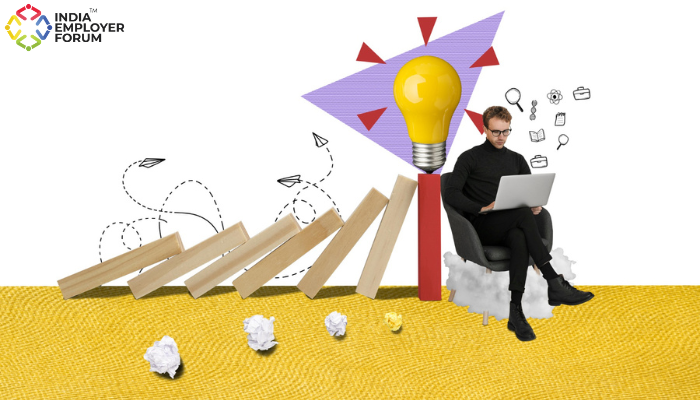The advent of Generative AI has ushered in a revolutionary era, transforming the way we approach various tasks. Its capabilities extend far beyond the automation of repetitive processes, now encompassing areas that demand judgment, creativity, and complex decision-making. From driving to music composition, stock trading to web development, and even fashion photography, algorithms are making significant strides, outperforming human capabilities in numerous domains.
As AI’s influence expands, many traditional skill sets are at risk of becoming obsolete. Occupations once perceived to be safe from automation, such as classroom teachers, artists, market research analysts, financial analysts, and customer service agents, are now facing stiff competition from intelligent algorithms. This shift raises the urgency for professionals to adapt and acquire new skills to remain relevant in the AI-dominated landscape.
To thrive in the AI era, both current professionals and future graduates must focus on cultivating skills that are less susceptible to automation and capable of augmenting AI’s potential.
The following are essential skillsets and mindsets to embrace:
Critical Thinking: Nurture the ability to analyse complex problems, identify patterns, and devise innovative solutions that AI may overlook as it would lack the exact context of the problem and proposed solution. AI would also not be aware of cultural nuances as it relies primarily on data while humans can analyse and view things in a more holistic manner leveraging the power of past experience as well tangible cultural and emotional filters.
Domain Knowledge: Develop expertise in specific industries or functions to leverage AI effectively and create tailored solutions. AI lacks the intuitive understanding and context that human experts possess and hence requires human intervention for fine-tuning results and thus perform proficiently in complex domains.
Original Creativity: Embrace creativity that goes beyond repetition and draws from unique perspectives, unlocking AI’s potential as a creative tool rather than a replacement, since AI struggles to generate truly novel ideas and artistic expressions without direct human influence.
Analytical Mindset and Reasoning: Sharpen your analytical abilities to interpret AI-generated insights and extract meaningful conclusions, recognizing that AI may offer data-driven outputs but cannot fully grasp the nuanced causal relationships or subtle patterns that humans can deduce.
Interpersonal Skills and Communication: Emphasize human-specific skills, such as relationship-building and effective communication, to complement AI’s limitations in emotional understanding as AI lacks genuine empathy and may misinterpret or miscommunicate nuanced human emotions.
Leadership and Risk-taking: Exhibit leadership qualities to make informed decisions that balance AI-generated insights with human judgment, especially in high-stakes scenarios, as AI recommendations might not consider the broader ethical, social, or long-term consequences.
Tech Stack Design: Comprehend AI technologies and how to integrate them into existing systems, enabling seamless collaboration between humans and machines, because AI integration requires a deep understanding of existing infrastructure and potential challenges.
Complex Problem Solving: Embrace interdisciplinary problem-solving approaches, combining art and science to tackle multifaceted challenges that AI alone cannot address, since AI may struggle with abstract or contextually shifting problems that involve diverse knowledge domains.
Design Thinking and Ideation: Harness creative problem-solving methodologies to devise innovative solutions and refine AI models for better outcomes, as AI-generated solutions might lack the intuitive leaps and holistic perspectives that human creative thinking can provide.
Judgment and Problem Identification: Cultivate the ability to discern which problems are best suited for AI solutions and identify potential ethical dilemmas associated with AI implementations, considering that AI may not always recognize the broader societal, cultural, or ethical implications of the problems it addresses.
Thriving in the AI era demands proactive action and adaptability. Here are some actionable strategies for professionals to navigate this transformative landscape:
Hone Problem-solving and Communication Skills: Continuously improve critical thinking abilities and enhance communication skills to effectively collaborate with AI systems and interpret their outputs.
Automate and Diversify Skillsets: If your job involves repetitive tasks, learn to automate them through AI and focus on acquiring new skills that complement and amplify AI’s capabilities.
Democratize Domain Knowledge: If you possess domain expertise, consider developing AI tools that democratize access to specialized knowledge, thereby creating scalable solutions.
Embrace AI-enhanced Management: Managers can lead the way by adopting AI to augment their teams’ productivity and optimize overall operational effectiveness.
In conclusion, the AI era brings forth both challenges and opportunities for professionals. By honing their skills, embracing creativity, and leveraging AI as a collaborative tool rather than a replacement, individuals can position themselves for success and thrive in this transformative age. Embracing the synergy between human judgment and AI capabilities will pave the way for a future where AI serves as a powerful enabler for human ingenuity and progress.
You might also be interested to read: Tech Intervention in Learning and Development: Harnessing the Power of AI Platforms




